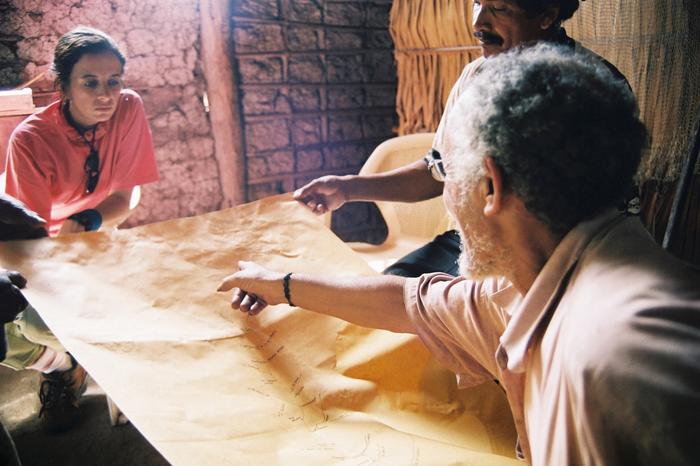Designed mainly for graduate students and early-career researchers, but also traditional knowledge holders and professionals from environmental and social science fields with an interest in sustainability science, the São Paulo School of Advanced Science on Transdisciplinarity for Transformative Change (SPSAS Transdisciplinarity) will be held on April 8-18 in São Luiz do Paraitinga, São Paulo state, Brazil. The School aims to offer a training opportunity on knowledge co-production to deal with the multidimensional social-ecological crises of the Anthropocene.

Credit: Rosely Alvim Sanches
Designed mainly for graduate students and early-career researchers, but also traditional knowledge holders and professionals from environmental and social science fields with an interest in sustainability science, the São Paulo School of Advanced Science on Transdisciplinarity for Transformative Change (SPSAS Transdisciplinarity) will be held on April 8-18 in São Luiz do Paraitinga, São Paulo state, Brazil. The School aims to offer a training opportunity on knowledge co-production to deal with the multidimensional social-ecological crises of the Anthropocene.
Reporters are invited to register for the scientific sessions and short courses, which will present state-of-art science and results of new research.
The School program includes four modules that cover the following topics: the global environmental change context and essential concepts for understanding it; methodologies and analysis techniques based on transdisciplinarity in social-environmental sciences; transdisciplinary initiatives fostering transformative change in science-policy arenas; and challenges in achieving transformative change.
Students will have the opportunity to participate in classes held by nationally and internationally renowned scholars. Anna Ibarra Stewart, Executive Director of the Inter-American Institute for Global Change Research (IAI), will be speaking about “Funding for Transdisciplinary research”; Eduardo Brondízio, Anthropology Professor at the University of Indiana (USA) and Co-chair of IPBES Global Assessment on Biodiversity and Ecosystem Services, will be giving a lecture entitled “Indigenous Local Knowledge for policy-making: the IPBES experience”; F. Stuart (Terry) Chapin, III, Ecology Professor at the University of Alaska Fairbanks (USA), will be sharing his thoughts on “Ecosystem stewardship”; Karen O’Brien, Sociology and Human Geography Professor at the University of Oslo (Norway) and Co-chair of the IPBES Assessment on Transformative Change, will be expanding on the theme “Transformative Change” – to name just a few.
The program also comprises panels with policymakers, local practitioners, and indigenous leaders; hands-on mentored student activities in breakout groups to co-design a transdisciplinary research proposal for transformative change; field trips to research institutions and traditional; art activities to co-design dialogues and scenarios; student research presentations using innovative ways to communicate science; cultural and networking events.
The São Paulo Research Foundation (FAPESP) is supporting the event through its São Paulo School of Advanced Science Program (SPSAS http://espca.fapesp.br/home). SPSAS Transdisciplinarity is aimed at candidates who have earned their PhD from 2017 onward. Priority will be given to participants with an interdisciplinary training.
Approximately 80 applicants, 40 from Brazil and 40 from other countries will be selected to participate in this School of Advanced Science. Participants will be selected based on their curriculum vitae, most recent academic transcript, by the analysis of the letter of intent, and by the analysis of the letters of recommendation. Applications must be submitted by January 8, 2024.




